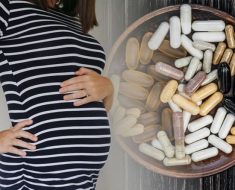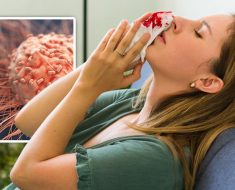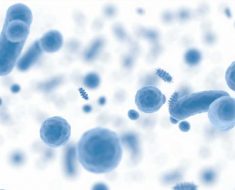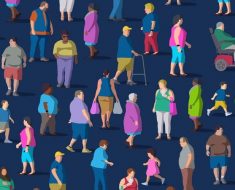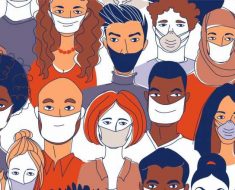Editor’s note: Find the latest COVID-19 news and guidance in Medscape’s Coronavirus Resource Center.
A one-time injection of the monoclonal antibody cocktail casirivimab with imdevimab (REGEN-COV), taken within 72 hours of a household member’s diagnosis with SARS-CoV-2, prevented 100% of COVID-19 illness, 100% of high SARS-CoV-2 viral loads, and cut length of asymptomatic infection to 1 week.
“It’s fantastic news,” said Rajesh Gandhi, MD, an infectious disease physician at Massachusetts General Hospital and Harvard Medical School, who has been treating people seriously ill with COVID-19 since the pandemic began a year ago in Boston. “For individuals who, for whatever reason, don’t get the vaccine or decline the vaccine or haven’t yet gotten the vaccine, it’s really proof that antibodies can prevent disease” in COVID-19.
Gandhi is chair of the HIV Medicine Association and serves on COVID-19 treatment guideline committees for both the Infectious Disease Society of America and the National Institutes of Health, but was speaking for himself.
The data were presented at the virtual Conference on Retroviruses and Opportunistic Infections 2021 Annual Meeting. Still, the impressive results are based on a study with very few SARS-CoV-2 infections overall, meaning that the results did not reach statistical significance.
The data elaborate on Regeneron’s earlier press release, which suggested the antibodies provided protection during COVID-19 treatment trials. Both Regeneron and Eli Lilly, which presented prevention data on its antibody bamlanivimab, are in discussions with the US Food and Drug Administration about an emergency use authorization for the antibodies as prevention.
The REGEN-COV data represent the first 409 SARS-CoV-2-negative people enrolled in an ongoing trial testing both the treatment and prevention efficacy of the combination casirivimab with imdevimab. Another arm of the study, not discussed in these data, includes family members of the 409 SARS-CoV-2-negative participants who tested positive for the virus at baseline.
Overall, median age was 44 years, 54.5% of participants were women, 48.9% were Latinx, and 12.6% were Black. People receiving active drug were slightly more likely to be women and Latinx, and slightly less likely to be Black. This contrasts with the makeup of the American pandemic, where Black people have just as many SARS-CoV-2 cases as their White peers, but are 2.9 times more likely to be hospitalized and 1.9 times more likely to die of the virus.
All participants in this trial were living with someone who was SARS-CoV-2-positive. Their mean body mass index was 29.4 kg/m2, just under the threshold of obese. Between the arms, 10% to 13% of participants had diabetes, and 14% to 17% were 55 years or older with markers of potentially worse outcomes if they were infected: cardiovascular disease, hypertension, or chronic obstructive pulmonary disease.
Participants were randomized, on a one-to -one basis, to receive placebo or a 1.2 g injection of casirivimab plus imdevimab, administered a single time. Then, for 28 days, researchers took weekly quantitative PCR data from the nasopharynx, oropharynx, nose, and saliva, and tracked COVID-19 symptoms for 29 days. After the 28 days, participants were followed for 7 months for long-term persistence of the antibodies and development of subsequent SARS-CoV-2 infection.
At the end of 28 days, the overall infection rate with SARS-CoV-2 was very low — 7.85% — in the combined placebo and treatment arms of the study. But that made it difficult to prove treatment efficacy definitively.
“We were surprised by having a lower number of infections than expected,” Regeneron’s Meagan O’Brien, MD, told Medscape Medical News. “When we designed the trial in the summer, all the information about household transmission at the time came from China and it looked like the rates were around 15%. So if someone in your house has COVID-19, there’s about a 15% chance other people will get it.”
If that had been the case, the fact that people receiving casirivimab and imdevimab developed SARS-CoV-2 at half the rate of people on placebo would have been definitive proof that it provided 50% protection from SARS-CoV-2 acquisition. Since the summer, though, data on household transmission have varied widely. As it was, a 7.85% overall infection rate and a 10.3% infection rate in the placebo arm meant that there weren’t enough people in the trial for the 50% reduction to be statistically significant.
Still, the results trended toward significant, said O’Brien, and were even more impressive when researchers focused on outcomes: Ten (5.3%) of the participants receiving casirivimab and imdevimab acquired SARS-CoV-2, but none developed symptoms of COVID-19, and none had SARS-CoV-2 viral loads in the nose that surpassed 104 copies/mL — a sign of a high viral load and therefore a likely higher rate of transmission to others.
This is where the 100% claim comes from: the antibodies prevented 100% of symptomatic SARS-CoV-2 and 100% of high viral loads.
“The lower number of infections within the REGEN-COV group were all asymptomatic, with decreased peak virus levels and a shorter duration of viral shedding,” O’Brien said in a prerecorded presentation. “Infections in the placebo group had a 100-fold higher peak viral load. Infections in the REGEN-COV group lasted around 1 week, while 40% of infections in the placebo group lasted 3 to 4 weeks.”
What’s more, the data show that when people in the placebo group did acquire SARS-CoV-2, the virus continued to linger for 44 weeks, and in 22 of those weeks, viral loads were above 104 copies/mL. By contrast, in the antibody arm, SARS-CoV-2 was only detectable for 9 weeks and never reached such high rates of viral shedding.
And although none of the participants were hospitalized for COVID-19 during the 28-day active treatment arm, one person in the placebo arm was hospitalized for COVID-19 symptoms about 12 weeks after testing negative. Another person in the placebo arm who tested positive for SARS-CoV-2 had a heart attack 6 weeks after initiation of the study.
None of the participants experienced severe reactions to the shots, such as anaphylaxis or seizure, and five people in each arm developed other treatment-emergent adverse events. Injection-site reactions were almost twice as common in people receiving active drug as those on placebo, but both were low (2.6% vs 1.4%).
The fact that the results were not statistically significant didn’t dampen much enthusiasm for the results among attendees.
“STUNNING results for REGEN-COV mAbs for PEP in household contacts,” tweeted Chloe Orkin, MBBCH, professor of infectious diseases at the Blizard Institute at Queen Mary University of London.
Peter Hunt, MD, professor of experimental medicine at the University of California, San Francisco GIVI Center for AIDS Research, told Medscape Medical News that the results were good enough for him to say that antibodies could change the way public health addresses equity in the COVID-19 response as vaccines slowly roll out around the world.
For instance, providing the antibodies to people in prison or detention centers could ward off or stop an outbreak within a week, instead of waiting several weeks for vaccines to be fully effective, he said.
“The biggest role for these agents is in regions where vaccination ramp up is slow or nonexistent,” Hunt told Medscape Medical News. “We could prevent a lot of mortality, for example, in low- and middle-income countries with these monoclonals deployed in outbreaks in congregate settings (nursing homes, jails, etc).”
Conference on Retroviruses and Opportunistic Infections (CROI) 2021 Annual Meeting: Abstract 123LB. Presented March 9, 2021
Heather Boerner is a science and medical reporter based in Pittsburgh , and can be found on Twitter at @HeatherBoerner. Her book, Positively Negative: Love, Sex, and Science’s Surprising Victory Over HIV, came out in 2014.
For more news, follow Medscape on Facebook, Twitter, Instagram, and YouTube
Source: Read Full Article

